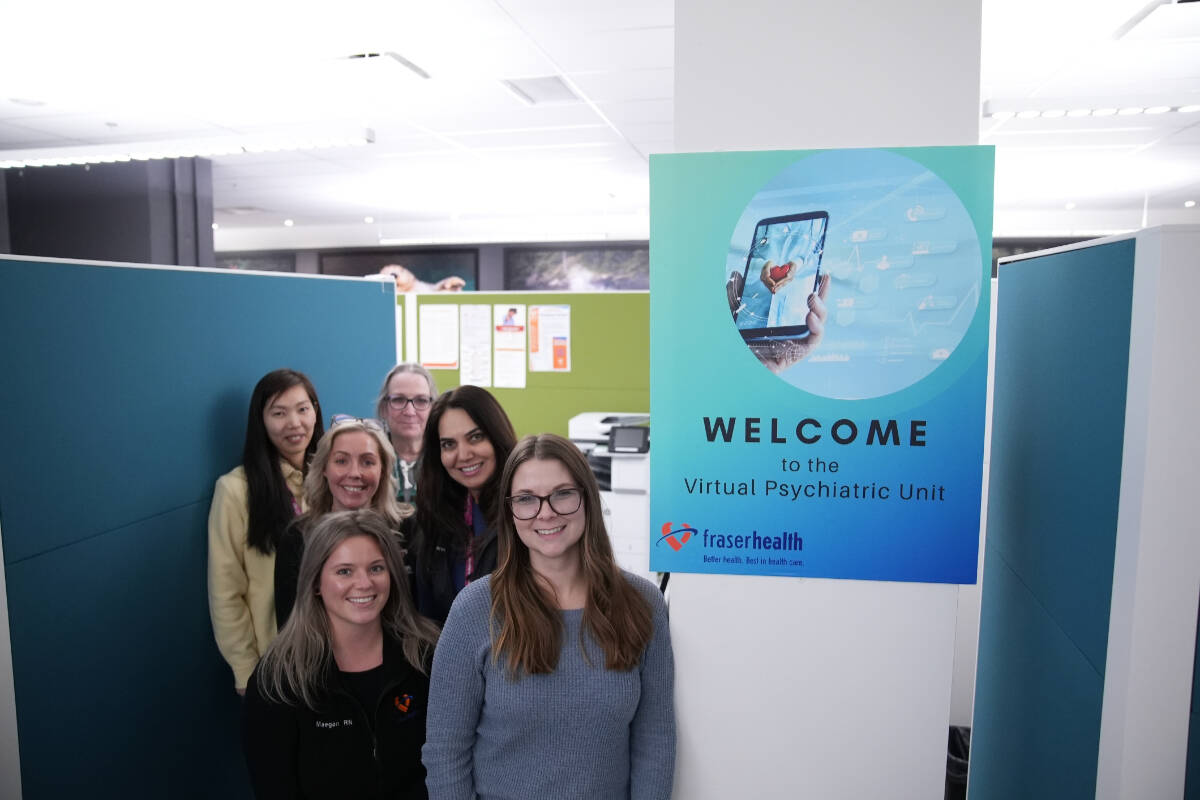Fraser Health has fully launched its virtual psychiatry unit – the first of its kind in B.C.
It began as a pilot project in September 2022 and Fraser Health said Thursday (Sept. 7) it’s now a full unit, having admitted and discharged 140 patients so far. Through the virtual unit, patients receive hospital-level psychiatric care from the comfort of their home.
Radhika Khosla has been a part of the project for nearly two years, joining at the development stage back in December 2021. Beginning as a nurse educator, she’s now the manager of the unit.
With a background in psychiatric nursing, she has lived and breathed mental health work for the last eight years. Getting it from “a piece of paper as a concept to a physical unit” took a lot of work because the team didn’t have the ability to learn from different virtual psychiatric units around the world.
“We were kind of trailblazing that.”
The unit allows eligible patients, who can manage at home, to receive psychiatric interventions safely and conveniently. They are admitted to the unit through the emergency department or inpatient psychiatry unit, and if they choose the virtual model their home becomes the hospital room.
But Khosla stresses that while the patients might be receiving treatment from home, this is still a hospital unit.
“People think (patients) get discharged home. That’s not the case. This is definitely a hospital-admitted unit. It’s equivalent to being transferred from, say, Royal Columbian Hospital … to Peace Arch Hospital.”
The virtual unit operates the like a brick-and-mortar hospital,”but the difference is, they’re in their own home, in the comfort of their own home, with their family, their friends, their loved ones, or pets”
She said it’s important to see patients being matched to the right environment to allow their mental health to thrive.
The health authority notes that people often make a better recovery in their own surroundings, while staying in hospital longer than necessary “can have a detrimental effect on their condition and their independence.”
“An astounding amount of patients actually felt that this was it was almost a game changer in their mental health. It was something they never thought was possible. They were home, they felt more support, more privacy. They felt more the care was dignified for them,” explained Khosla.
The necessary equipment is delivered to their homes, which includes an LTE-enabled iPad since some people might have connectivity issues and vitals machines, such as a blood-pressure cuff.
“The technology is easy to use,” said Julie, whose name has been changed to protect her privacy, a former patient who spent approximately one month in the Virtual Psychiatry Unit. “My care team saw me struggling on a daily basis and was able to connect me with the help I needed to ensure I felt safe.”
During the time patients are admitted into the unit, they’re able to continue their day-to-day activities. Khosla said they’ve had new mothers in the unit who have struggled with depression post-partum and otherwise would have had to be separated from their baby if admitted to a hospital.
“We’ve had abilities to support these patients in their own home and some sessions the mothers were with their newborn baby breastfeeding, but she’s able to still see her psychiatrist. This is something that usually in a hospital setting, you don’t get to see or witness or do.”

